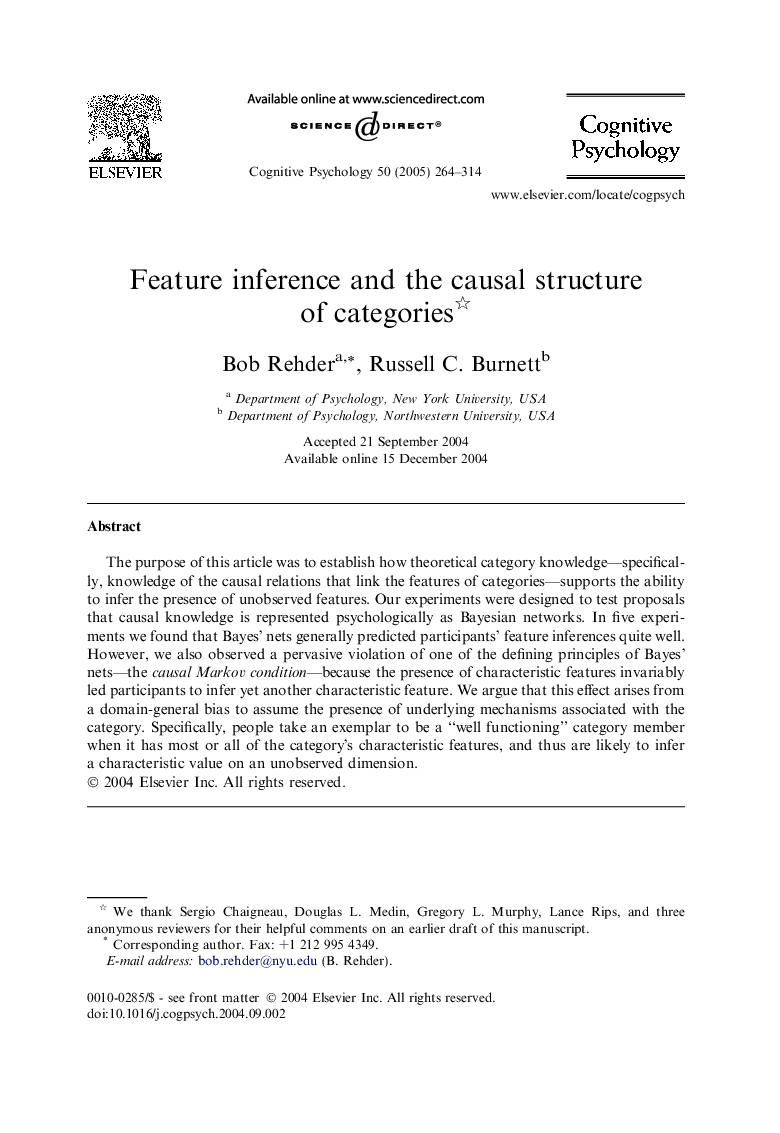| Article ID | Journal | Published Year | Pages | File Type |
|---|---|---|---|---|
| 10452465 | Cognitive Psychology | 2005 | 51 Pages |
Abstract
The purpose of this article was to establish how theoretical category knowledge-specifically, knowledge of the causal relations that link the features of categories-supports the ability to infer the presence of unobserved features. Our experiments were designed to test proposals that causal knowledge is represented psychologically as Bayesian networks. In five experiments we found that Bayes' nets generally predicted participants' feature inferences quite well. However, we also observed a pervasive violation of one of the defining principles of Bayes' nets-the causal Markov condition-because the presence of characteristic features invariably led participants to infer yet another characteristic feature. We argue that this effect arises from a domain-general bias to assume the presence of underlying mechanisms associated with the category. Specifically, people take an exemplar to be a “well functioning” category member when it has most or all of the category's characteristic features, and thus are likely to infer a characteristic value on an unobserved dimension.
Related Topics
Life Sciences
Neuroscience
Cognitive Neuroscience
Authors
Bob Rehder, Russell C. Burnett,
